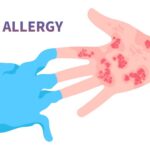
Introduction
Cravings are more than just hunger—they’re powerful psychological and biological signals. Understanding what causes them and how to manage them can lead to better eating habits and greater self-control. Let’s break down the science behind cravings and how to work with them, not against them.
What Causes Food Cravings?
- Hormonal Triggers: Ghrelin and leptin regulate hunger and fullness, while dopamine and serotonin influence reward-seeking behavior.
- Emotional States: Stress, boredom, or sadness can increase cravings for comfort foods.
- Sleep Deprivation: Lack of rest increases hunger hormones and intensifies cravings.
- Nutrient Deficiencies: Sometimes cravings stem from lacking key nutrients like magnesium, iron, or protein.

Tips to Manage Cravings
- Pause and Reflect: Wait a few minutes before acting on a craving—many pass on their own.
- Choose Healthier Alternatives: Satisfy sweet cravings with fruit, or crunchy cravings with nuts or seeds.
- Get Enough Sleep: Adequate rest keeps hunger hormones in check.
- Stay Hydrated: Thirst is often mistaken for hunger.
- Don’t Deprive Yourself: Allowing occasional treats can reduce the intensity of future cravings.
Conclusion
Cravings are natural, but they don’t have to control you. With awareness and a few smart strategies, you can understand your cravings and make choices that align with your health goals.
Summary
- Cravings are driven by hormones, emotional states, sleep patterns, and nutrient needs.
- Managing cravings involves awareness, hydration, sleep, and healthy swaps.
- Deprivation often intensifies cravings—balance is key.
- Understanding cravings helps build better eating habits and control.

This article reviewed by Dr. Jim Liu, MD.
There’s nothing more important than our good health – that’s our principal capital asset.
#medical #telehealth #umedoc













